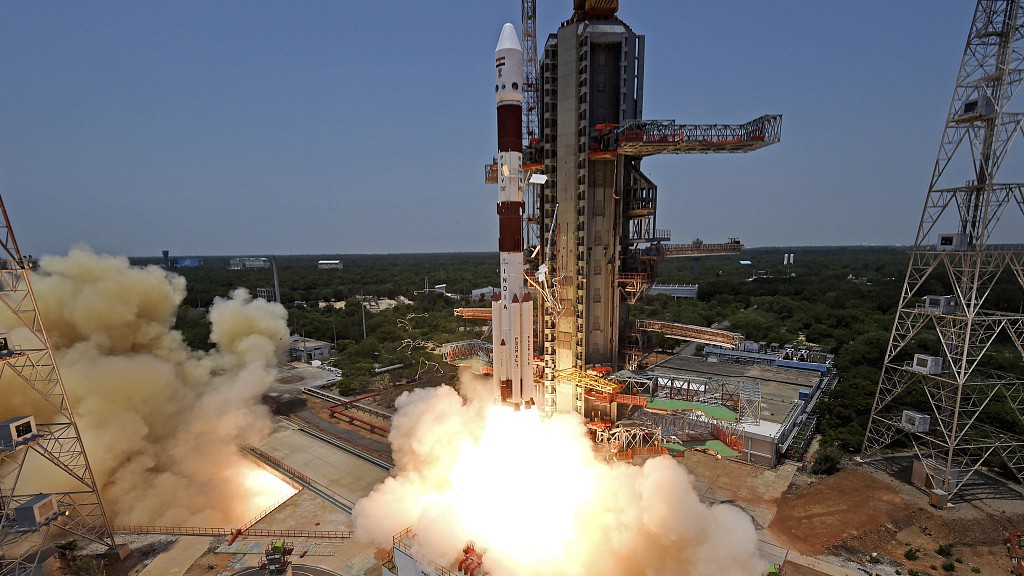
The Aditya-L1 spacecraft lifts off on board a satellite launch vehicle from the space center in Sriharikota, India, September 2, 2023. /CFP
The Aditya-L1 spacecraft lifts off on board a satellite launch vehicle from the space center in Sriharikota, India, September 2, 2023. /CFP
The Indian Space Research Organization (ISRO) said on Saturday that the Aditya Solar wind Particle Experiment (ASPEX) payload onboard India's maiden solar mission, Aditya-L1 satellite, has commenced its operations and is performing normally.
"The Solar Wind Ion Spectrometer (SWIS), the second instrument in the ASPEX payload is operational," the ISRO said in a brief statement.
The agency also released a histogram illustration depicting the energy variations in proton and alpha particle counts captured by SWIS over two days.
India's Aditya-L1 satellite lifted off from Sriharikota in Andhra Pradesh on September 2.
The ISRO said the solar mission will provide a greater advantage of observing solar activities and their effect on space weather in real time.
It will provide information to understand the problem of coronal heating, coronal mass ejection, pre-flare and flare activities and their characteristics, dynamics of space weather, as well as propagation of particle and fields, among others.
Source(s): Xinhua News Agency


